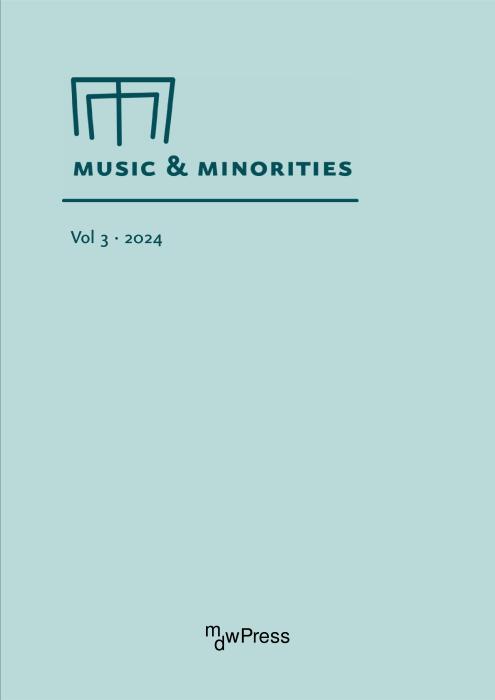New Collection of Romani Music Studies Published

A special issue of the online journal Music & Minorities, published by the Music and Minorities Research Center (MMRC, Vienna), has been released under the title “Contemporary Views on Romani Music and Romani Music Studies.” This issue was prepared to mark the 30th anniversary of the official recognition of the Roma as a national minority in Austria in 2023. The issue was edited by the distinguished Austrian Romani music scholar, advocate for minority music studies, and MMRC director, Ursula Hemetek.
The issue presents ten articles by leading researchers in the field, including Margaret Beissinger, Adriana Helbig, Zuzana Jurková, and others. Topics covered include: Romani women singers in Romania; the war in Ukraine and Romani participation in the resistance; dom (Gypsy) music and the stigmatization of musicians in Syria; the remembrance of World War II and the Romani genocide in the Czech Republic and Austria; education support programs for Romani children in Slovakia; the representation of Romani music in U.S. and British archival collections; the development of music in Romani religious communities in Hungary; and the impact of Latvian Roma emigration on music and its research.
Included in the issue is an article by Ieva Vīvere, researcher at the UL Institute of Literature, Folklore and Art, titled “Researching a Community in Transition: Latvian Roma between Latvia and the United Kingdom”. The article includes photographs and video examples. Since Latvia joined the European Union in 2004, nearly half of the Latvian Roma population has emigrated—primarily to the United Kingdom. The article reflects on migration as a form of losing one’s fieldwork community and the researcher’s process of coming to terms with that loss.
In 2019, in an effort to re-establish connection with the community, the author created a Facebook group titled Latvijas romu vēsture un kultūra (History and Culture of Latvian Roma). Initially intended as a space to share visual materials on Roma history, the group gradually evolved into a form of digital participatory ethnography—including interaction through music-related content.
The article also includes insights from a 2023 field study in England among Latvian Roma who are active Christians and part of religious congregations formed in the UK. The research highlights a triple mobility—physical, social, and spiritual—which, according to the author, calls for a re-evaluation of the frameworks traditionally used in Latvian Roma studies.
The research was supported by the State Culture Capital Foundation of Latvia.